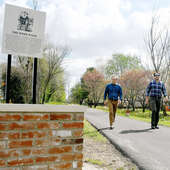Preventing Teen Suicide
Thursday, June 30, 2022

Since 1999, the number of deaths by suicide has continued to increase for all ages. More specifically, according to the 2015 study “Racial and gender disparities in suicide among young adults aged 18-24,” this is the second-leading cause of death for adolescents and young adults aged 15-24. The American Psychological Association reported 1,700 teenagers die each year because of suicide. This statistic does not account for the teenagers who may be considering suicide, those who have made a plan to commit to suicide or the ones who have even previously had a serious attempt to complete suicide.
According to the 2013 Youth Risk Behavioral Surveillance, 17 % of American teenagers have seriously considered suicide, 13.6% have made a plan and 8.0% have seriously attempted within the 12-month period prior.
It is important to remember suicide is preventable. Research has shown when at-risk youth are identified and provided with treatment, this can serve as an effective intervention that will literally save lives. Furthermore, research from the American Psychological Association has identified multiple warning signs to look for and techniques to help support people, engage in conversation and refer individuals who may be struggling with suicidal ideation to the appropriate.
As a professional in the social work field, people often ask me how to apply this information within the walls of their homes. While it may seem simple, or even cliché, my answer is always to talk with and actively listen to your teenagers. Having open and honest conversations with our teenagers often consists of listening without judgment and simply validating their feelings of whatever it is they are struggling to understand.
This solution may seem counterintuitive to our natural instincts to fix a problem. However, it is this active listening that provides teenagers with a safe space to express themselves and allows them to begin seeing the value in their lives and relationships.
Physicians are on the medical staff of Southeast Behavioral Hospital, but, with limited exceptions, are independent practitioners who are not employees or agents of Southeast Behavioral Hospital. The facility shall not be liable for actions or treatments provided by physicians. For language assistance, disability accommodations and the nondiscrimination notice, visit our website.






























